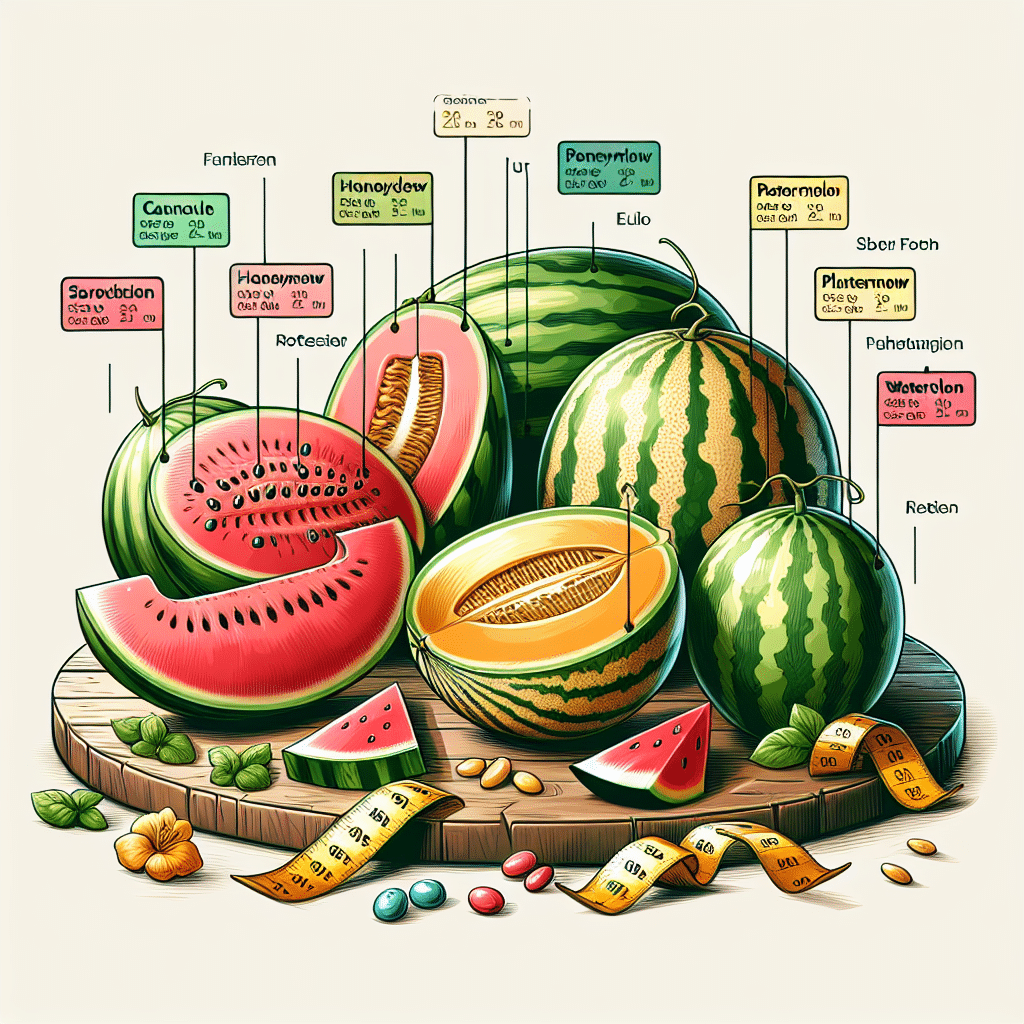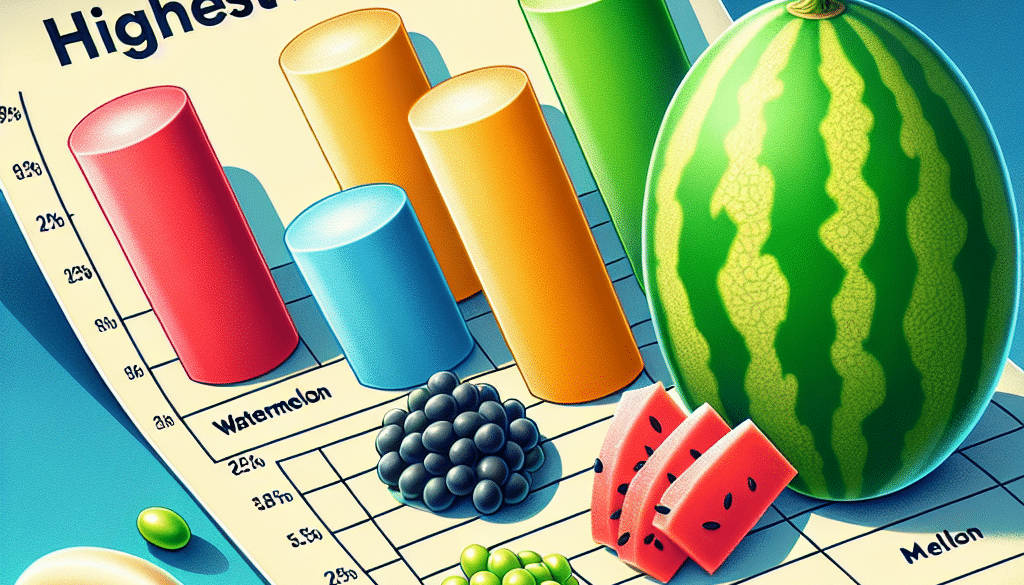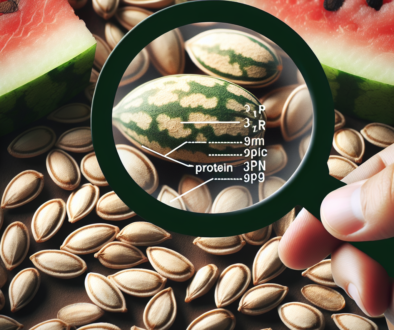Which Melon Is High In Protein?
-
Table of Contents
- High-Protein Melons: A Nutritional Comparison
- Understanding Protein in Fruits
- Protein Content in Popular Melon Varieties
- Comparing Melons to Other Protein Sources
- Case Study: The Role of Melons in a High-Protein Diet
- Health Benefits of Melons Beyond Protein
- Conclusion: The Verdict on High-Protein Melons
- Discover ETprotein’s High-Quality Protein Products
High-Protein Melons: A Nutritional Comparison

When it comes to fruits, melons are often celebrated for their hydrating properties and sweet, refreshing taste. However, they are not typically recognized for their protein content. As consumers become more health-conscious, the nutritional value of every food item, including protein content, is scrutinized. This article delves into the world of melons to uncover which variety offers the highest protein content and how it compares to other protein sources.
Understanding Protein in Fruits
Before we explore the protein content in melons, it’s important to understand that fruits, in general, are not protein powerhouses. They are more renowned for their vitamins, minerals, and fiber. However, they do contain small amounts of protein, which can contribute to the daily protein intake, especially for those following a plant-based diet.
Protein Content in Popular Melon Varieties
Among the various types of melons, such as watermelon, cantaloupe, honeydew, and others, there is a slight variation in protein content. Here’s a breakdown of the protein content in common melon varieties per 100 grams:
- Watermelon: Approximately 0.6 grams
- Cantaloupe: Approximately 0.8 grams
- Honeydew: Approximately 0.5 grams
As seen from the list above, cantaloupe emerges as the melon with the highest protein content, albeit by a small margin. However, it’s important to note that while cantaloupe leads the pack in protein content among melons, it still provides a relatively low amount of protein compared to other protein-rich foods.
Comparing Melons to Other Protein Sources
To put the protein content of melons into perspective, let’s compare them to other more recognized protein sources:
- Chicken breast (cooked): Approximately 31 grams per 100 grams
- Lentils (cooked): Approximately 9 grams per 100 grams
- Almonds: Approximately 21 grams per 100 grams
Clearly, while melons can contribute to your daily protein intake, they should not be relied upon as a primary protein source. Instead, they can complement a balanced diet that includes a variety of protein-rich foods.
Case Study: The Role of Melons in a High-Protein Diet
Consider the case of a vegetarian athlete who needs to ensure adequate protein intake for muscle repair and growth. While melons alone would not meet their protein requirements, incorporating cantaloupe as a part of a meal that also includes nuts, seeds, and legumes can help increase the overall protein content while also providing essential vitamins and hydration.
Health Benefits of Melons Beyond Protein
Despite their low protein content, melons offer a range of health benefits that make them a valuable addition to any diet:
- Hydration: Melons have a high water content, which helps keep you hydrated, especially during hot weather or after exercise.
- Vitamins and Minerals: Melons are rich in vitamins A and C, as well as potassium and other essential nutrients.
- Dietary Fiber: The fiber in melons promotes digestive health and can help regulate blood sugar levels.
- Antioxidants: Melons contain antioxidants that can help reduce inflammation and protect against certain diseases.
Conclusion: The Verdict on High-Protein Melons
In conclusion, while cantaloupe is the melon with the highest protein content, melons should not be considered a significant source of protein. They are, however, nutritious fruits that offer a variety of health benefits and can be included as part of a balanced diet. For those looking to increase their protein intake, it is advisable to look towards other plant-based or animal-based protein sources.
Discover ETprotein’s High-Quality Protein Products
If you’re seeking to boost your protein intake, ETprotein offers a range of high-quality protein products that can meet your needs. Their selection includes organic rice protein, pea protein, and unique options like watermelon seed protein, which can be a novel addition to your diet. ETprotein’s products are characterized by their neutral taste, non-GMO, and allergen-free attributes, making them suitable for various dietary preferences and requirements.
About ETprotein:
ETprotein, a reputable protein and L-(+)-Ergothioneine (EGT) Chinese factory manufacturer and supplier, is renowned for producing, stocking, exporting, and delivering the highest quality organic bulk vegan proteins and L-(+)-Ergothioneine. They include Organic rice protein, clear rice protein, pea protein, clear pea protein, watermelon seed protein, pumpkin seed protein, sunflower seed protein, mung bean protein, peanut protein, and L-(+)-Ergothioneine EGT Pharmaceutical grade, L-(+)-Ergothioneine EGT food grade, L-(+)-Ergothioneine EGT cosmetic grade, L-(+)-Ergothioneine EGT reference grade and L-(+)-Ergothioneine EGT standard. Their offerings, characterized by a neutral taste, non-GMO, allergen-free attributes, with L-(+)-Ergothioneine purity over 98%, 99%, cater to a diverse range of industries. They serve nutraceutical, pharmaceutical, cosmeceutical, veterinary, as well as food and beverage finished product distributors, traders, and manufacturers across Europe, USA, Canada, Australia, Thailand, Japan, Korea, Brazil, and Chile, among others.
ETprotein specialization includes exporting and delivering tailor-made protein powder and finished nutritional supplements. Their extensive product range covers sectors like Food and Beverage, Sports Nutrition, Weight Management, Dietary Supplements, Health and Wellness Products, and Infant Formula, ensuring comprehensive solutions to meet all your protein needs.
As a trusted company by leading global food and beverage brands and Fortune 500 companies, ETprotein reinforces China’s reputation in the global arena. For more information or to sample their products, please contact them and email sales(at)ETprotein.com today.














